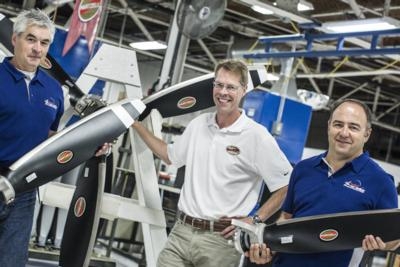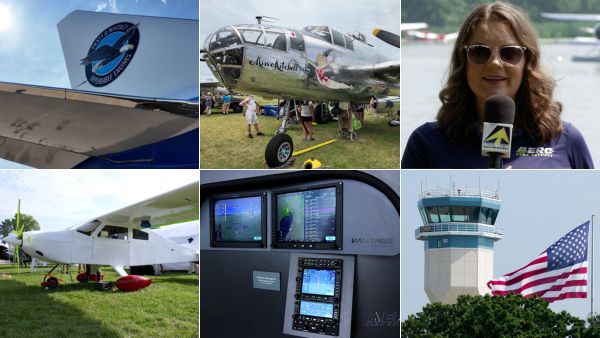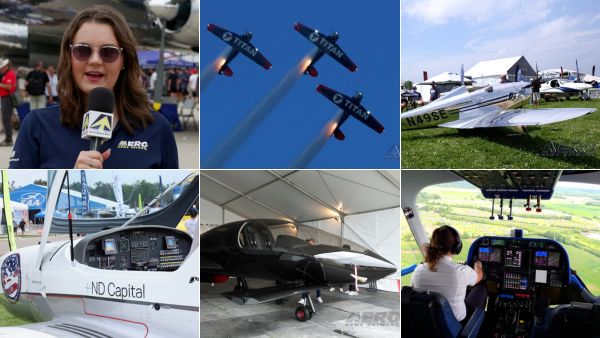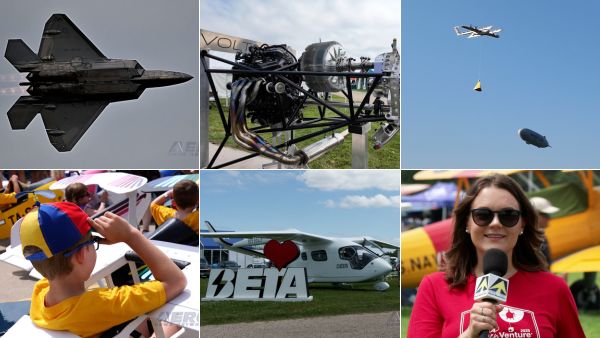Sat, Dec 14, 2013
Airplanes To Each Be Fitted With Hartzell Composite Props
The launch of the 2014 Red Bull World Championship has seen a host of modifications to the rules and regulations. Along with the standardized racing engines comes a similar amendment to the propellers. But what exactly does the new propeller policy entail?

In previous years, each team could choose its own propeller. But for the 2014 season, each plane will be fitted with the Hartzell 3-bladed 7690 structural composite propeller. Hartzell is renowned for its commitment to innovation, performance and safety and has led the aviation industry for nearly 100 years. The propeller, nicknamed 'The Claw' by Red Bull Air Race pilot Michael Goulian, is noted for its low gyroscopic forces and inertia and incredible thrust. By the end of the last Red Bull Air Race season, all of the competing teams had converted to the 'Claw'.
But although the Hartzell propeller may be standardized for the Red Bull Air Race, it is by no means a standard propeller,
"The airfoil and propeller system is designed to maximize aircraft performance and will enable pilots to achieve greater performance than any other available propeller," reveals Sam Gascho, a Hartzell representative. "This is why so many of the pilots chose 'The Claw' during the prior race series."
"The propeller has seen many years of proven service in the aviation world," Gascho explains. "We have performed propeller vibration and strain surveys in order to measure the loads and strains the propellers see in operation. We then compare these loads to the established blade fatigue allowables that were obtained as part of our FAA certification testing."
In addition, Hartzell will also provide lightweight governors, carbon fiber composite spinners and technical support and maintenance services for each team.
The decision to use the standardized propeller was taken in order to improve the safety of the aircraft, in case of engine failure. The new propellers will be fitted with counter-weights, which will determine what the blades will do if oil pressure is lost during flight. In the event of a loss in oil pressure and without the counter-weights, the propeller blades will twist and become flat against the airflow, creating drag and causing the plane to slow down and descend at a rapid pace. But with counter-weights in place, the blades are prevented from twisting, enabling them to remain inline with the airflow - therefore allowing the plane to glide for longer.
With all aircraft now on a level playing field, the biggest variable will now be in the skill of each pilot.
(Image provided by Red Bull)
More News
Also: Centauri Aircraft Valkyrie, Meet the Admin, Night Airshow, Pelton Intv'w When we laid eyes on this critter, we fell in love… and then we learned the amazing story of t>[...]
Check out Blackshape in Oshkosh Display #190 Situated in the Apulian Aerospace district in Monopoli, Italy, Blackshape embodies the epitome of Italian craftsmanship, style, and qua>[...]
A Powerhouse In Aviation Safety Technology, Visit Alpha Systems AOA at Osh Display#3124-3125 Alpha systems AOA has been developing and integrating Angle of Attack systems for the l>[...]
High-Flying Models By PilotMall.com: Honoring Aviation's Legacy We are dedicated to preserving and celebrating our rich aviation heritage through stunning mahogany wood scale repli>[...]
CiES Has Pioneered Life Saving Technology Of Use To Pilots All Over The World... Booth 3119 CiES: CiES Inc. is the global leader in digital fuel quantity sensors for general aviati>[...]
 OSH25 Day Four Redux: Spirit SE-1!, H55 eFlyer, King Schools
OSH25 Day Four Redux: Spirit SE-1!, H55 eFlyer, King Schools ANN Thanks Our Speedy Sponsor... Blackshape!!!
ANN Thanks Our Speedy Sponsor... Blackshape!!! Alpha Systems AOA Guides ANN Oshkosh Coverage
Alpha Systems AOA Guides ANN Oshkosh Coverage Pilot Mall Intro's High Flying Models To ANN Sponsor Lineup
Pilot Mall Intro's High Flying Models To ANN Sponsor Lineup CiES Fuels ANN's Oshkosh 2025 Special Event Coverage
CiES Fuels ANN's Oshkosh 2025 Special Event Coverage



